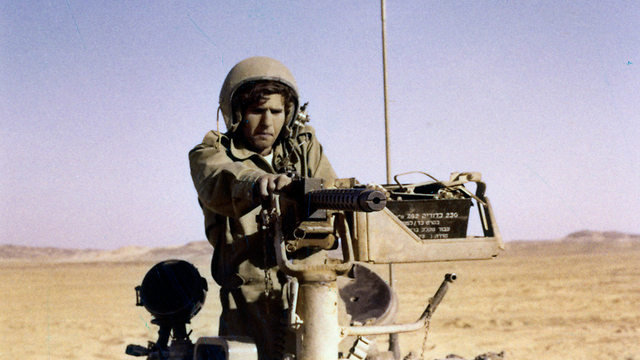
No one is talking about peace
Op-ed: After the Yom Kippur War, like now, the concept of 'land for peace' was never taken seriously by Israel's leadership; then, like now, Israel was blinded by hubris.
Eons have passed since the Yom Kippur War. A lot has changed. Israel's population has more than doubled; the standard of living of the average Israeli has tripled. Empires have collapsed, ideologies faded away, the markets have broken and revived again. Loved ones have passed away. The personal computer, cell phone and internet have reduced the distances between people, and yet pushed them further from each other. Arab socialism has made way for Arab Islamism.
The babies of winter 1973, among them my son, were born about a year after the war and are now in their 40s. They're settled, celebrating their birthdays with the family, no longer expecting the fulfillment of a promise we made when we returned - that this would be the last war.
It would not be the last, nor the one before the last, or even the one before the one before the last. The despair for peace has only grown and spread. The protest song "Everybody is talking about peace, no one is talking about justice" has been reversed: Today everyone is talking about justice; no one is talking about peace.
When the war broke out I was a journalist for Al HaMishmar (On Guard), the newspaper of the small, sane, left-wing Zionist Mapam party. Two Mapam ministers sat in Golda Meir's government of the time, but had zero influence over her. They often voted against the majority decision and fulfilled the role of internal opposition.
Al HaMishmar and its supplement Chotem (Seal) urged Mapam to leave the government after it rejected American mediation in peace efforts. We didn’t join in with the festival of belligerence that bamboozled so many. We warned against the unbridled ambition of Moshe Dayan, and even published a fictional account of his takeover of the state. Dayan fumed and threatened to throw Mapam out of the government. A cover story in Chotem from the time reported on the establishment of "a new Jewish ghetto in Hebron." Shimon Peres and Golda Meir were horrified.
Sections of The Seventh Day, the most important book ever written about the wars in Israel, were published by us. Chotem introduced to an Israeli audience to "You, Me and the Next War," the subversive work of native playwright Hanoch Levin, which was staged in a rented building close to the newspaper's offices. Hashomer Hatzair, the youth movement from which had Mapam evolved, refused to populate outposts in the Sinai and demonstrated against the establishment of a maritime city there.

We were not leftists, we were realists. In Al HaMishmar there was no expression of the blinding national hubris. We were at times accused of being too rational, too dry, too reliant on the head and not the belly. So we were not surprised, my colleagues and I, by the Yom Kippur War. There was no surprise; what we feared would happen, happened.
I remember the anger at the Al HaMishmar and Chotem offices over sanctimonious articles that appeared in other newspapers beneath the headline "We are all guilty". Collective guilt, we wrote in response, removes the blame placed on those who refused to accept reality, who buried their heads in the warm sands of the Sinai beaches.
Later came the general consensus that Israel had fallen victim (as was written in the reports of the committees investigating the war) to the idea that the armies of Egypt and Syria would never strike Israel first, that the massive power of the IDF would deter them forever. But we also had a different definition of the concept of national consensus, as was revealed during the Yom Kippur War - the rejection of the formula of "land for peace."
The leaders of the coalition and of the opposition dismissed the idea of land for peace so contemptuously. As one, Golda Meir, Menachem Begin, Moshe Dayan, Simcha Erlich and Yisrael Galili rejected it. Mapam, Hashomer Hatzair, Al HaMishmar and Chotem saw it as the only way to prevent the next war. But it was a path that Israel refused to go down.
So yes, my 40-year-old son, a lot has changed since the Yom Kippur War; so much, and yet so little.










